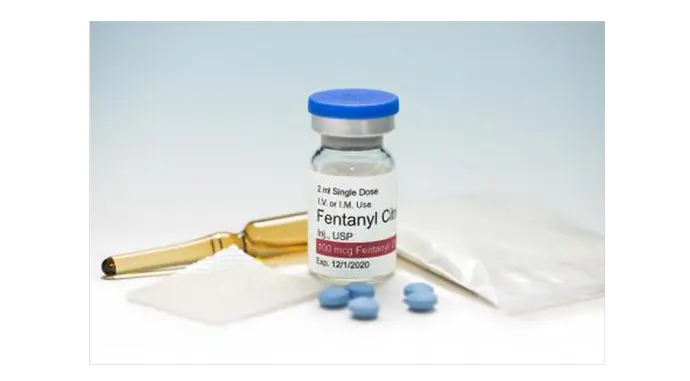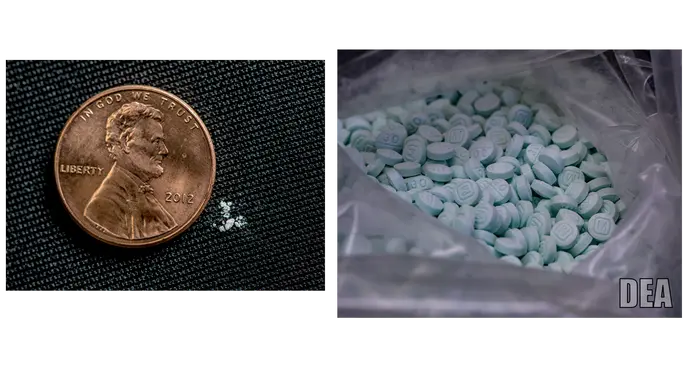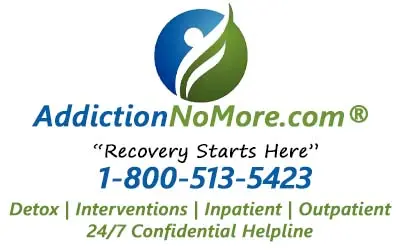Fentanyl Detox and Rehab Centers in Connecticut
Many of the detox and rehab centers in Connecticut offer programs created specifically for Fentanyl abuse. These programs will have a detoxification program that they work with or have an on-site detox to ensure a painless withdrawal. When someone is seeking treatment for Fentanyl misuse, one of the first things that can come to mind is the painful withdrawal that can happen when you stop taking the medication. Finding a program that has a detoxification center will make the withdrawal process much safer and less painful than going cold turkey. Fentanyl is one of the most addictive opioids manufactured today, but rest assured there are rehab programs that will make recovery possible.Fentanyl is a very addictive synthetic opioid often prescribed for severe pain and chronic pain sufferers. Anyone who has taken fentanyl for a long period of time understands the downside when developing a dependency on the drug. With fentanyl being found in almost every street drug available on the black market today the chances of an accidental overdose are very good. Fortunately, Fentanyl misuse is a treatable condition. Finding a detox center and or rehab center program is the best way to avoid an accidental overdose. Going to inpatient treatment for Fentanyl addiction will be one of the best decisions you can make for yourself or a loved one who is dependent on Fentanyl.
Treatment protocols for Fentanyl addiction are not much different from other opioid treatment protocols. The first step in recovery will be to assess if there is a necessity for detox, and what type of detox protocols would best serve the current use patterns and size of dosage. Before stopping any addictive medications, it is best to consult your doctor and find out if it is safe to do so. If you need help finding a detox center or program close to you, we can help. Please contact us by phone for immediate assistance. This is a necessary step in beginning the recovery process for yourself or for a loved one. Our addiction treatment specialists and staff have over 25 years of experience in helping people find effective and affordable treatment for all addictions. What you tell us is completely confidential. We are HIPAA compliant. We are here to answer your questions and to get you (or a loved one) into treatment today. For immediate intake, call us now.
1-800-513-5423

Prescription fentanyl is available under such names as Actiq®, Duragesic®, and Sublimaze® in the form of tablets, an injectable liquid, lozenges and patches.
When it is intentionally misused, fentanyl often shows up as a powder, spiked on blotter paper or is mixed with or substituted for heroin and other street drugs.
Image from DEA.gov
Will insurance pay for treatment and detox for Fentanyl addiction?
You can use private health insurance, Medicaid, Medicare, Blue Cross, Aetna, United Healthcare, and others to cover treatment for fentanyl addiction. Insurance companies will cover some or most of the expenses when you use your plan to cover addiction services. Many drug rehab facilities are in-network with major healthcare providers making it less expensive to enter treatment for fentanyl abuse. Addiction specialists will be able to check your coverage and help you decide which program is right for you.Most insurance plans will cover some or part of your detox program even if your doctor has prescribed the fentanyl, you have been misusing. Insurance companies have a set of treatment protocols that they must follow when it comes to addiction, but levels of coverage may vary from plan to plan. We can help you verify your benefits and see if your plan is in-network with one of the fentanyl detox centers near you. You can also call the number on the back of your insurance card and see what your coverage and out-of-pocket expenses are so you can be prepared and understand your financial responsibilities.
 How much does a detox for Fentanyl cost?
How much does a detox for Fentanyl cost?
The price of private detox for most opioids and derivatives can range from about $3,000-20,000 dollars depending on the detox program and type of detox offered. The most expensive detox available is rapid detox which is not usually covered by health insurance. There are also social detox centers and outpatient detoxification programs that can be very low cost or no cost depending on the program. Fentanyl is one of the most addictive opioids that a person can be prescribed. Fentanyl is 50 to 100 times more potent than other opioids in the same family leading to a nationwide epidemic. With fentanyl adding to the ongoing opioid crisis in the country rehab centers, detox facilities, and medication-assisted treatment programs in Connecticut are the first defense to help.1-800-513-5423

Fentanyl is a powerful synthetic opioid. Medically, it is used to treat severe pain or to manage pain after surgery, and is sometimes used to treat patients with chronic pain who are physically tolerant to other opioids.
Image from DEA.gov
Name-brand drugs that contain Fentanyl
Fentanyl is the generic name for many different drugs on the market today. Brand name Fentanyl prescription medications include:
Duragesic is a medicine that is used in treating chronic pain in children above the age of two and adults. It contains Fentanyl and is available as a transdermal patch. The Duragesic patch time–releases the medication through the skin gradually delivering the medicine to the patient.
Sublimaze is a synthetic opioid used in combination with other drugs for conscious sedation in patients requiring endoscopic diagnostic and therapeutic procedures. Fentanyl citrate (sublimaze) is an injectible form of Fentanyl.
Subsys is a very strong pain medication used to treat breakthrough cancer pain in people who already take around-the-clock opioid medications. This is in the form of an oral spray that is used under the tongue.
Actiq is given to cancer patients for treating breakthrough cancer pain that is not controlled by other medications. This medication is in the form of an oral transmucosal lozenge.
Ionsys (fentanyl iontophoretic transdermal system) is a self dosing transdermal plastic housed fentanyl dispensing unit. Each Lonsys system provides on-demand systemic delivery of fentanyl for up to 24 hours or 80 doses whichever comes first. This medication is to be used only in a hospital setting to make sure it is closely monitored.
Abstral is a sublingual tablet that is given to breakthrough cancer pain patients who are already taking opioids and have built up a tolerance to their medications.

How We Can Help
Our addiction treatment specialists and staff have over 25 years of experience in helping people find effective and affordable treatment for all addictions. We can help you verify if your insurance is in network with one of the treatment centers near you. What you tell us is completely confidential. No one will ever know that we spoke to you without your consent. We are HIPAA compliant.We can help educate you as to which type of program is best suited for you. We know that entering into a treatment program is a huge step to take and the commitment to treatment can seem overwhelming. Our counselors are here 24/7 to help guide you to the best-suited treatment center for you. It is sometimes beneficial for the client to go to treatment further away from home. Getting away from temptations and friends who may still be using is often better for many people. Clients who go to rehab in another state also have a harder time leaving treatment early as well. Depending on the situation, our counselors may suggest looking for substance abuse programs that are a plane flight away. Do not wait until something adverse happens before you commit to treatment for addiction to Fentanyl. Our certified counselors will help you answer any questions you have. If you need help locating an inpatient rehabilitation program call to speak with one of our counselors today. We are here to help you find a treatment center that is close to where you live or anywhere in the country.
1-800-513-5423
Bridgeport Connecticut Drug Rehabs
Danbury CT Addiction Treatment
Hartford Connecticut Drug & Alcohol Rehabilitation
New Britain CT Drug Rehab Centers
New Haven Connecticut Drug Treatment Facilities
Norwalk Connecticut Substance Abuse Treatment
Stamford CT Inpatient Drug Rehab Services

Waterbury Hospital offers several different outpatient levels of care for fentanyl misuse and addictions. Detox programs are also available along with medication stabilization. Medications used in detox and stabilization can include buprenorphine or naltrexone. Payments accepted include Tribal funding, Tricare, Medicaid, Medicare, private health insurance, and cash or self-payment.
Waterbury Hospital
88 Grandview Avenue
Waterbury, CT 06708
VA Healthcare Systems of Connecticut offers a fentanyl and opioid detox program through the VA hospital. The VA also has a short-term residential treatment program and outpatient therapy programs for fentanyl overuse. Detox and stabilization medications can include methadone, buprenorphine, or naltrexone. Payments accepted include Tricare, private health insurance, and cash or self-payments.
VA Healthcare Systems of Connecticut Substance Abuse Treatment Program
950 Campbell Avenue, Suite 116-A3
West Haven, CT 06516
New Era Rehabilitation Center offers substance abuse treatment programs, medication-assisted treatment plans, and counseling. Detox and MAT services may include the following medications: Methadone, Buprenorphine, or Naltrexone. Payments accepted include Medicaid, Medicare, Private health insurance, cash or self-payments, and SAMHSA block grant funding.
New Era Rehabilitation Center Inc (NERC)
311 East Street
New Haven, CT 06511
Connecticut Valley Hospital offers hospital inpatient detoxification programs and inpatient rehab center programs for fentanyl misuse, and opioid dependency problems. Detox and stabilization medications can include Methadone, Buprenorphine, or Naltrexone. Payments accepted include Medicaid, Medicare, and private health insurance. Tricare, and cash or self-payments.
Connecticut Valley Hospital Addiction Services Division
Tynan Circle
Middletown, CT 06457
Inter-Community Healthcare offers substance abuse treatment programs and residential detoxification programs for fentanyl abuse and misuse in Hartford Connecticut. Medications used in detoxification programs can include methadone, naltrexone, or buprenorphine. Payments accepted include Medicaid, cash or self-payments, and private health insurance.
Inter Community Healthcare Inc Detox Center
500 Blue Hills Avenue, 6th Floor
Hartford, CT 06112
Waterstone Counseling Center offers outpatient detox and mediation-assisted treatment programs with counseling sessions. Treatment for opioids, fentanyl, or any other synthetic opioids can include medication-assisted treatment programs using buprenorphine, Naltrexone, lofexidine, clonidine detoxification, and withdrawal stabilization medications. Payments accepted include Medicaid, Medicare, Private health insurance, and cash or self-payment.
Waterstone Counseling Center
86 Bradley Road
Madison, CT 06443
Connecticut Counseling Centers offers intensive outpatient treatment programs, medication-assisted treatment plans, and detoxification programs for opioid misuse and fentanyl overuse. Medications used in the MAT program can include methadone or buprenorphine. Payments accepted include Medicare, Medicaid, private health insurance, and cash or self-payments.
Connecticut Counseling Centers Inc Norwalk Clinic
20 North Main Street, 3rd Floor
Norwalk, CT 06854
Liberation Programs offers outpatient detox/medication stabilization, regular outpatient treatment programs, and IOP rehab programs. Medication-assisted treatment and detoxification programs may use methadone or naltrexone. Payments accepted include Medicaid, Medicare, private health insurance, Tricare, and SAMHSA block grant money.
Liberation Programs Inc Stamford Methadone
115 Main Street
Stamford, CT 06901
Stonington Institute offers a short-term inpatient rehab center program, inpatient detoxification programs, and 24-hour support services. Medications used in fentanyl detox can include buprenorphine or naltrexone. Payments accepted include Medicaid, Tricare, private health insurance, and cash or self-payment.
Stonington Institute
75 Swantown Hill Road
North Stonington, CT 06359
Sources
Insurance coverage
Chapter 5—Specialized Substance Abuse Treatment Programs
DSM-5-TR Diagnostic and Statistical Manual
Drug Overdose Statistics
Opioids
HIPAA Home
Erik Epp – Content Author




